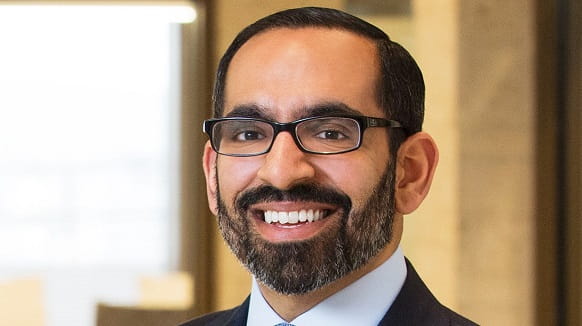Intellectual Property Partner Raghav Bajaj was interviewed on a TalksOnLaw webcast about how a typical patent becomes a Standard Essential Patent (SEP) and the common legal issues relating to SEPs.
Below is an excerpt from the TalksOnLaw website and webcast:
Standards are necessary for wide adoption of technologies and to ensure interoperability. Mobile phones, for example, can connect to 4G/LTE and WiFi regardless of make and model because the technologies conform to standards set by patent holders and industry groups. Many computers, smartphones, and other electronic devices can be plugged in with the same USB cable because the ports and connectors are standards. When a technology or protocol is deemed to be a standard, the patents of its essential components become standard essential patents (SEPs). Raghav Bajaj, partner at Haynes and Boone and patent law expert, explains the basics of the standard-setting process and how a typical patent may become an SEP.
One standard can include thousands or tens of thousands of individual SEPs, laying the ground for potential disputes when so many different parties are involved. Raghav explores the common legal issues relating to SEPs, including what it means to license on fair, reasonable, and non-discriminatory (FRAND) terms, the problem of over-declaration, and how patent pools can streamline SEP licensing.
“Patent pools make it much easier for a potential implementer to license a pool of standard essential patents and implement that technology,” Raghav said.
Excerpted from TalksOnLaw. To see the full interview, click here.
Below is an excerpt from the TalksOnLaw website and webcast:
Standards are necessary for wide adoption of technologies and to ensure interoperability. Mobile phones, for example, can connect to 4G/LTE and WiFi regardless of make and model because the technologies conform to standards set by patent holders and industry groups. Many computers, smartphones, and other electronic devices can be plugged in with the same USB cable because the ports and connectors are standards. When a technology or protocol is deemed to be a standard, the patents of its essential components become standard essential patents (SEPs). Raghav Bajaj, partner at Haynes and Boone and patent law expert, explains the basics of the standard-setting process and how a typical patent may become an SEP.
One standard can include thousands or tens of thousands of individual SEPs, laying the ground for potential disputes when so many different parties are involved. Raghav explores the common legal issues relating to SEPs, including what it means to license on fair, reasonable, and non-discriminatory (FRAND) terms, the problem of over-declaration, and how patent pools can streamline SEP licensing.
“Patent pools make it much easier for a potential implementer to license a pool of standard essential patents and implement that technology,” Raghav said.
Excerpted from TalksOnLaw. To see the full interview, click here.
